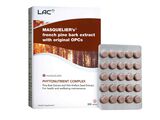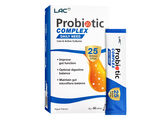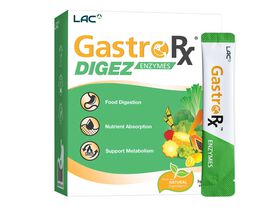Facts vs Myths About Immunity

There are several beliefs going around about immunity, let’s find out which are credible and which are not.
Our immune system plays a vital role in safeguarding our bodies against harmful pathogens such as bacteria and viruses that can make us ill. Aside from genetics, other factors such as our diet, lifestyle and environment can all have an impact on our immune system, either positively or negatively. There are several well-intended hearsays, beliefs and folk remedies going around, let's sort through them to see which are credible and which are not.
Facts vs Myths About Immunity
1. “I was born with strong immunity and it will stay this way.”
It's a myth! Everyone is born with a certain level of immunity and develops adaptive immunity as we mature, however it is not resistant to damage. Although some people are born with a stronger immune system, our immune function gradually declines as we grow older. [1] This may be due to as we age, we have fewer circulating white blood cells which reduces immune defense and results in a slower response to infectious invaders . [2]
Besides, our lifestyle also affects how efficiently the immune system protects our body. Factors such as a sedentary lifestyle, unhealthy diet, smoking, excessive alcohol consumption and insufficient sleep can all weaken your immune system and make you more vulnerable to infections.
2. Sleep has little impact on immunity.
It's a myth! Rest and sleep are essential for maintaining a healthy immune system. A study found that participants who slept for less than 6 hours a night for one week were four times more likely to fall ill, compared to those who slept for at least 7 hours per night. [3] Getting 7 – 8 hours of quality and sufficient sleep per day based on our body’s circadian rhythm (body’s internal clock) helps strengthen our immune system, aids in immune cells regeneration, reduces inflammation, and helps form immunological memory. Therefore, getting a good night's sleep is critical to help your immunity regenerate . [4]
3. Gut bacteria are important for a healthy immune system.
It's a fact! There is a strong correlation between gut health and how well your immune system works. In fact, the gut wall contains around 70% of the immune system . [5] A well-balanced microbiota, as the colonies of bacteria, fungi, viruses and protozoa in your gut, play an important role in keeping your immune system healthy and able to combat harmful bacteria and viruses . [6]
A healthy person has approximately 100 trillion bacteria in their gut. Good gut health occurs when you have a balance between the good and bad bacteria and yeast in your digestive system. However, the level of healthy bacteria in our body decreases as we age, and due to other factors such as a poor diet, stress, and use of medication.
Therefore, we must find ways to balance the microbiota in our intestines. Probiotics are “good bacteria” that help support a healthy digestive system, helping us maintain a healthy balance of microflora in the gut to prevent the growth of harmful bacteria and uncomfortable symptoms. We may get probiotic from foods such as kefir, tempeh, kombucha tea, kimchi, and miso. Alternatively, taking a supplement is another option to boost gut health.
4. Sunbathing can be good for your immunity.
It's a fact! Our bodies need adequate sunlight to naturally produce Vitamin D. Sunlight is the primary source of Vitamin D, as few foods naturally contain it. While egg yolks and fish contain Vitamin D, one must consume large amounts of them to meet the daily Vitamin D requirements, that's why some would consider supplement to boost Vitamin D in the body.
Vitamin D helps keep bones healthy and increases the intestinal absorption of calcium. It also plays an important role in promoting immune response and reducing the risk of respiratory tract infection. [7]
Generally, the recommended sunbathing time is about 10 to 15 minutes a day, or about 30 minutes if you are dark-skinned, without getting any health problems. [8]
5. Exercise does not affect the immune system.
It's a myth! Regular exercise promotes good immune health as it raises levels of white blood cells, which are the soldiers that fight off viruses and bacteria. [9] Besides, exercising has many health benefits, such as improving your mood through the release of endorphins also known as happy hormones. Regular exercise also contributes greatly towards supporting our overall cardiovascular health.
However, be sure not to overdo it, as too much vigorous exercise can have a detrimental effect. Keep it simple by walking, jogging, or swimming. Just make sure to move your body every day to support your immune system.
6. Stress has a negative impact on your immune system.
It's a fact! Our body releases stress hormones such as cortisol which helps us cope with stress. However, too much cortisol in the bloodstream can compromise immune response as it lower the lymphocyte level, the white blood cells that help fight off infections. [10] A person who is experiencing long-term stress may find themselves having “stress-induced sickness”, symptoms such as feeling anxious depression, along with reduced appetite and insomnia, which affects our body’s immune functions over time.
It is important to find ways to cope with stress, whether through exercise, meditation, get socially involved, or engage in your preferred hobbies. The saying “laughter is the best medicine” rings true as laughing releases dopamine that lifts our mood. [11]
We hope that you have found this article useful in providing a greater understanding towards our immune system. Let's Keep strong, stay healthy, sleep well, laugh a lot and exercise regularly to live well!
[1] https://www.emergenc.com/newsroom/fun-facts-about-the-immune-system/
[2] https://www.eatingwell.com/article/7937565/myths-about-immunity-fact-or-fiction/
[3] https://www.eatingwell.com/article/7937565/myths-about-immunity-fact-or-fiction/
[4] https://www.webmd.com/sleep-disorders/poor-sleep-affects-health#3
[5] https://www.healthline.com/health/digestive-health/things-your-gut-wants-you-to-know
[6] https://www.healthline.com/nutrition/gut-microbiome-and-health
[7] https://www.ncbi.nlm.nih.gov/pmc/articles/PMC3543548/
[8] https://www.webmd.com/a-to-z-guides/ss/slideshow-sunlight-health-effects
[9] https://www.the-well.com/editorial/surprising-facts-about-your-immune-system
[10] https://health.clevelandclinic.org/what-happens-when-your-immune-system-gets-stressed-out
[11] https://www.healthline.com/health/cold-flu/fun-facts#Laughter-helps-your-immune-system











